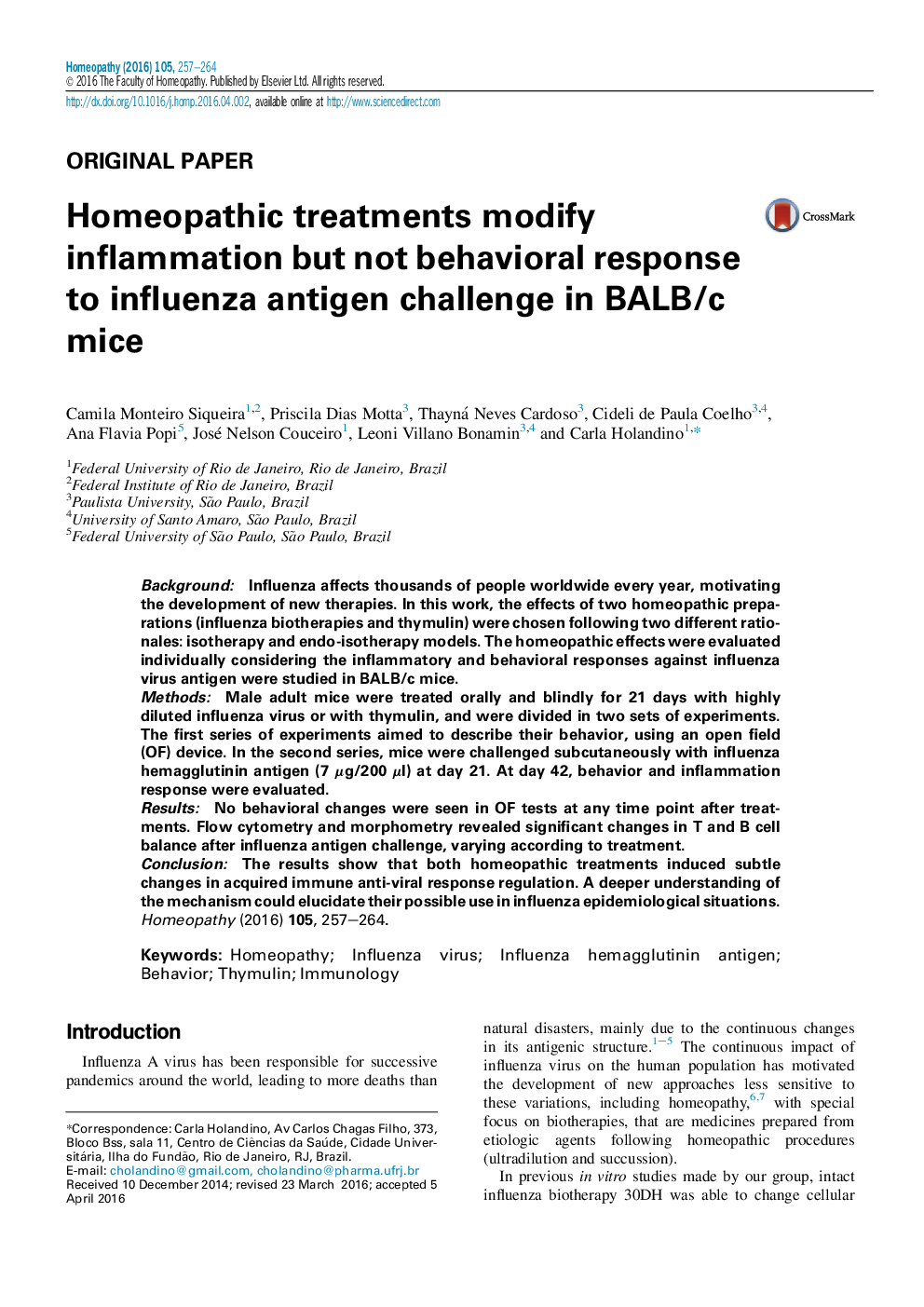| Article ID | Journal | Published Year | Pages | File Type |
|---|---|---|---|---|
| 2629633 | Homeopathy | 2016 | 8 Pages |
•Different potencies of H3N2 biotherapy can modulate the immune system.•The H3N2 and thymulin homeopathic solutions did not interfere in the animal's behavior.•The homeopathic solutions induced changes in acquired immune antiviral response regulation.•The clinical implications worth to be further discussed.
BackgroundInfluenza affects thousands of people worldwide every year, motivating the development of new therapies. In this work, the effects of two homeopathic preparations (influenza biotherapies and thymulin) were chosen following two different rationales: isotherapy and endo-isotherapy models. The homeopathic effects were evaluated individually considering the inflammatory and behavioral responses against influenza virus antigen were studied in BALB/c mice.MethodsMale adult mice were treated orally and blindly for 21 days with highly diluted influenza virus or with thymulin, and were divided in two sets of experiments. The first series of experiments aimed to describe their behavior, using an open field (OF) device. In the second series, mice were challenged subcutaneously with influenza hemagglutinin antigen (7 μg/200 μl) at day 21. At day 42, behavior and inflammation response were evaluated.ResultsNo behavioral changes were seen in OF tests at any time point after treatments. Flow cytometry and morphometry revealed significant changes in T and B cell balance after influenza antigen challenge, varying according to treatment.ConclusionThe results show that both homeopathic treatments induced subtle changes in acquired immune anti-viral response regulation. A deeper understanding of the mechanism could elucidate their possible use in influenza epidemiological situations.
